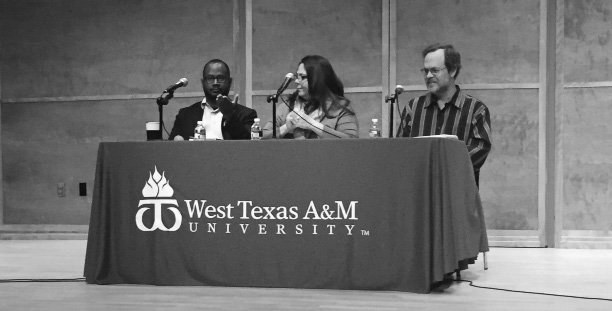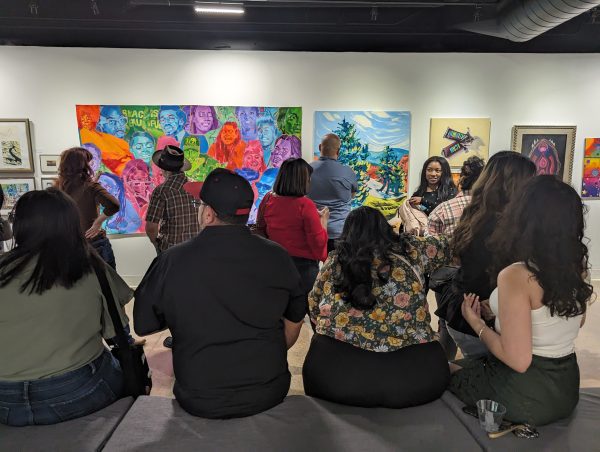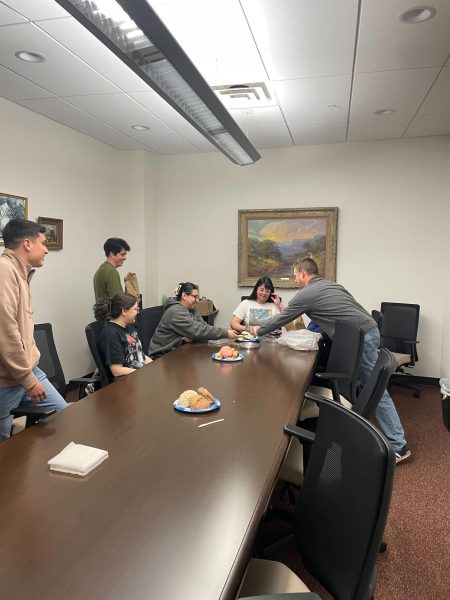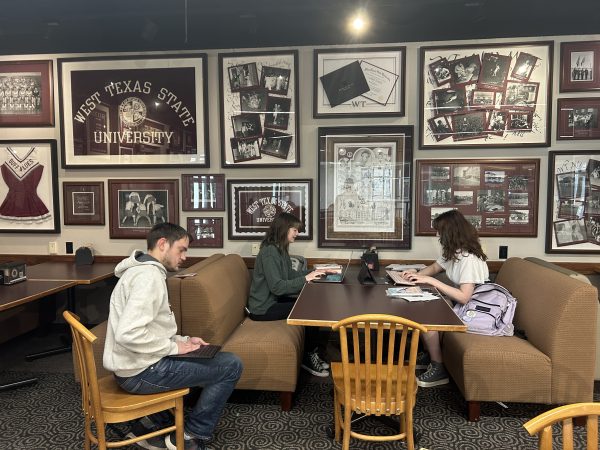Faculty speak on women of Civil Rights Movement
April 8, 2015

A panel of West Texas A&M University faculty members lectured on the women of the Civil Rights Movement on Tuesday, March 31.
The event was organized by graduate student Alice MillerMacPhee and sponsored by the Office for Diversity and Inclusion and the Gender Studies Certificate Program.
“I organized this event to bring visibility to the women who were integral in establishing and creating momentum during the Civil Rights Movement,” MillerMacPhee said. “It was important to me and those involved that we recognize and celebrate the contributions of women who were vital to the success of the movement and who have enhanced our understanding and appreciation of diversity.”
The event was held in honor of Women’s History Month. The faculty members each spoke on one woman they thought was influential and brought about change during the Movement.
The first speaker was Dr. Marty Kuhlman, a history professor. He lectured about Fannie Lou Hamer, an African-American civil rights activist born in 1917 in Mississippi. Hamer was fired from her job for registering to vote. She then began encouraging African-Americans to vote and worked to expand voting rights. She co-founded the Mississippi Freedom Democratic Party in 1964 and ran for Congress the following year.
“I like studying the Civil Rights Movement because I see it as the ultimate expression of what democracy should stand for,” Kuhlman said. “A group of people are oppressed and they take it upon themselves to change the system.”
The second speaker was Dr. Lisa Garza, a professor of sociology. Garza said she was glad for this discussion as somewhat of another civil rights movement begins against police brutality in America. She spoke about Ella Baker, a trailblazing activist born in 1903 in Norfolk, Va. Baker fought against segregation and Jim Crow laws. In 1940, she became involved in the NAACP and worked as a field secretary for the organization.
Garza said Baker was somewhat bothered by the social structure within the NAACP, as mostly men were in leadership positions that formed a hierarchy. Baker left the NAACP to travel and recruit people to help her to organize campaigns against lynching.
“I am most passionate about social justice, therefore my attraction to sociology,” Garza said. “This is why I admire Ella Baker. She was truly an activist who made a difference in the lives of so many people.”
Dr. Anand Commissiong, a professor of political science, spoke about Claudia Jones. Born in 1915 in Trinidad and Tobago, she moved to the United States with her family and became a part of the Civil Rights Movement. She grew up in New York in extremely poor conditions and joined the Communist Party by 1936. Commissiong chose Jones because she represented a form of analysis he believes in called intersectionality, or the idea that people receive discrimination on more than one level. Jones was discriminated against for being an African American, lower class and a woman.
She was a journalist who created writing that was far left and mainly focused on the condition of black women. Jones was eventually deported, but continued writing in London. Her influence was impressive as she began her own newspaper and continued her avid activism until her death in 1964.
“I am interested in social justice and the dynamics of social change,” Commissiong said. “We want students to be engaged. If events like this are what students want, we will do whatever we have to in order to help.”
Visit wtamu.edu/genderstudies for more information about the faculty members and their research.













